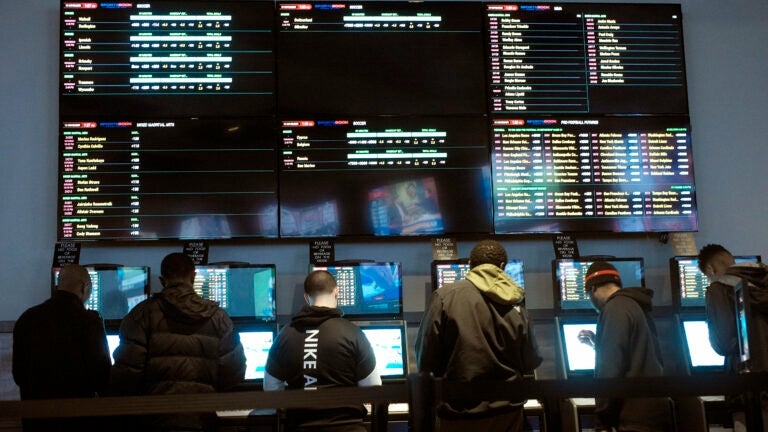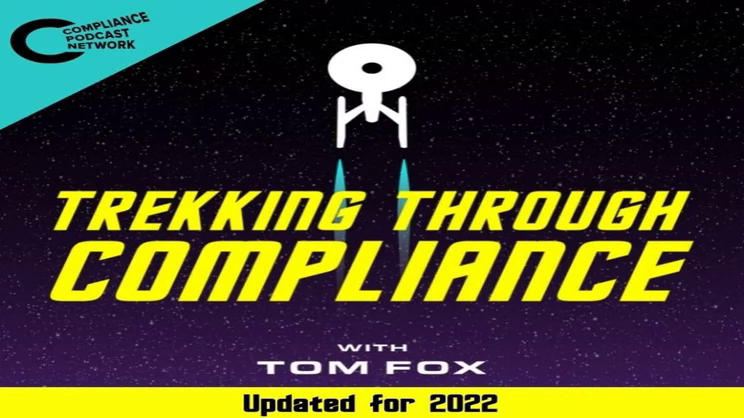Campaigns for Propositions 26 and 27 on this November’s ballot have made a wide range of claims, particularly about how money raised from California sports betting will be distributed.
Chances are one of the many ads to legalize sports betting has caught your eye, given their ubiquity on TV, websites and billboards across California.
You’d be forgiven, however, if you still don’t have a clear sense of what any of the initiatives do. Some of the ads don’t mention sports betting at all, potentially leaving Californians confused about what exactly they’re being asked to decide.
The ads are “oversimplified to the point of not being entirely accurate,” said Mary Beth Moylan, an associate dean and professor at Pacific University’s McGeorge School of Law who oversees a journal dedicated to the California initiatives.
Proposition 26 would legalize sports betting in tribal casinos and at four private horse tracks in California. It is paid by a dozen Indian tribes. It would also allow tribes to begin offering roulette and craps games.
Proposition 27 would legalize online sports betting statewide and is paid for by several major gaming companies. Under Proposition 27, both gaming companies and tribes can offer online and mobile sports betting.
But how true are the ads? Here’s what you need to know about some of the oft-repeated claims.
Claim: “Tribal leaders support the Solutions Act (Prop 27)”
Leaders from three of California’s 110 federally recognized Indian tribes – the Santa Rosa Rancheria Tachi Yokut Tribe, the Middletown Rancheria Pomo Indians and the Big Valley Band of Pomo Indians – support the proposal for online sports betting.
Chairman Jose “Moke” Simon III of the Middletown Racheria of the Pomo Indians said in an interview with CalMatters that he supports Proposition 27 because it gives the tribe an opportunity to attract more funding. To see also : The Organization | [RD/SD03] Strongest Battle Deck Yuamu – Come Out! High Tech Dragon!. The tribe is rural and has a casino about an hour’s drive north of Napa.
“Our brick and mortar (casino) is only limited by our area where we’re located, and mobile sports betting would allow us to reach a much wider audience,” said Simon III.
But more than 50 tribes and tribal organizations oppose Proposition 27. They say it would disrupt decades of gaming on tribal lands and take business away from Indian casinos.
It’s true that a few tribal leaders support Proposition 27, but far more tribal leaders oppose the measure.
Claim: Proposition 27 “supports every California tribe, including financially disadvantaged tribes that don’t own big casinos”
It’s true that every tribe would see some sort of benefit from Proposition 27. Tribes that have agreements with the state of California that allow them to offer gambling can create their own mobile sports betting app or website. Or, they could partner with a gaming company that wants to offer online sports betting in California.
The initiative also taxes online sports betting and earmarks 15% of the money for tribes not involved in sports betting. Read also : Sports Haven: A family store that supports families. But since it’s hard to know exactly how many people will bet, how many companies and tribes will want to offer sports betting, or how many companies will take tax breaks, it’s impossible to know how much money that will be.
Every tribe has the potential to benefit from Proposition 27, yes. It is unclear to what extent each tribe would benefit.
Claim: Proposition 27 provides “hundreds of millions in yearly funding to finally address homelessness in California”
This is a bit complicated. This may interest you : Saudi Arabia sees hosting the Olympics as the “ultimate goal” of sports programs – SportsPro. It’s possible the proposal will generate hundreds of millions of dollars a year to address homelessness, but that’s not guaranteed.
Every election cycle, the nonpartisan Legislative Analyst’s Office reviews each proposal and estimates the new costs and revenues each could create for the state. They found that Proposition 27, through taxes and fees, would increase the flow of money to the state by “probably hundreds of millions of dollars, but probably no more than $500 million a year.” The office did not include a lower estimate.
First, the money would be used to cover new costs related to regulating sports betting, which analysts estimate could reach tens of millions of dollars a year.
Of the remaining money, 15% would go to tribes that do not participate in sports betting, and 85% would go to homeless solutions. The Legislature could also decide to direct some of it to treatment for gambling addiction.
It’s possible that Proposition 27 would eventually generate hundreds of millions of dollars a year for the state to address homelessness. But if the taxes and fees end up bringing in $100 or $200 million a year—as opposed to $500 million—then they wouldn’t. Also, if the Legislature decides to direct a large portion to gambling addiction treatment, it would reduce the amount that goes to homelessness solutions.
How does this money fit into what California is already spending to address homelessness? California spent $7.2 billion on homelessness programs in the 2021-22 budget year, according to state analysts. If Proposition 27 added, say, $300 million, that would be a 4% increase.
Claim: “90% of the profits [of Prop. 27] go to out-of-state corporations”
This claim is based on the fact that Proposition 27 taxes online sports betting at a rate of 10%. So the question is: where exactly will the other 90% go? The truth is that it is impossible to know exactly.
If Proposition 27 passes, gaming companies based in other states will want to get in on the action, since they’re the ones funding the measure. The companies funding the initiative have some of the most popular online sports betting platforms: FanDuel has 31% of the US market, followed by DraftKings with 26% and BetMGM with 16%, according to Eilers & Krejcik, a research firm focused on games of chance. So it’s reasonable to expect their platforms to be popular in California as well.
Does this mean that these companies will reap all the profits? The initiative also allows California tribes to independently offer mobile and online sports betting. If the tribes choose to do so, they would earn a share of the profits.
Gaming companies based in other states could also end up having to spend money in California to do business here. For example, companies will have to enter into an agreement with the tribe to operate legally, and that agreement could include some type of payment or revenue sharing. Gaming companies may have to pay employees or contractors in California to start operations here.
The companies financing the campaign are based outside of California. What percentage of the profits would actually go to them is currently impossible to know.
2022 Election
Your Guide to the 2022 California General Election
Claim: Tribes are “pushing Prop 26 to guarantee themselves a virtual monopoly on all gaming in California by giving private trial lawyers the powers of the Attorney General to bury their licensed cardroom competitors with frivolous lawsuits.”
This argument contains several claims. It’s based on a section of Proposition 26 that allows any person (or organization) who believes someone else is violating California’s gambling laws — by offering an illegal game, for example — to sue. Before they could sue, however, they would first have to ask the state Department of Justice to act, and could only move forward if the department failed to take action, or the department filed a case and the court dismissed the case but allowed it to be filed again. These are complicated legal matters. But it’s not an entirely new idea; California used a similar process to enforce labor laws.
Are tribes trying to “guarantee themselves a virtual monopoly?” In 2000, Californians voted to allow tribes to offer certain forms of gambling — including slot machines and casino-backed card games — that no other entity in California is allowed to offer. Proposition 26 would allow tribes to begin offering roulette and craps games, which no other entity can offer, as long as they renegotiate their agreement with the state. Thus, the initiative would expand the tribes’ exclusive rights to offer certain forms of gambling.
Would the new lawsuit process “give private attorneys the power of the attorney general to bury their licensed competitors in the gym with frivolous lawsuits?” It would allow private attorneys to bring cases that are currently the purview of state attorneys general. The Proposition 26 campaign has made no secret of the fact that the tribes intend to sue the gaming houses, which compete with tribal casinos.
The lawsuit process was “designed to address the home bank gaming law that regulates card rooms,” Kathy Fairbanks, spokeswoman for the Yes on 26 campaign, said at a recent debate. The rules about how cards are allowed to offer certain games have long been a source of contention between cards and tribes. The tribes don’t have the right to challenge them in court, Fairbanks said, so they want a way to do so.
The idea that this would unlock a barrage of frivolous lawsuits, however, assumes that courts don’t already have a process in place to deal with frivolous lawsuits, said Moylan, the law professor. Courts can sanction lawyers who file frivolous lawsuits, for example, Moylan said.




